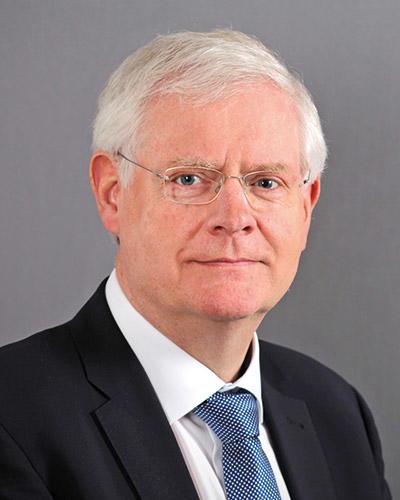

- Ben Poole
- Editorial Team, Treasury Management International (TMI)
By directly linking clearly defined environmental, social and governance (ESG) targets to the credit margin of its recent refinancing, innovative Dutch potato starch and protein manufacturer Royal Avebe not only embedded sustainability at the very heart of its finance operations, it also won a national treasury award.
It should come as no surprise that Royal Avebe, the Netherlands-headquartered cooperative of around 2,300 arable farmers in the Netherlands and Germany, has a keen regard for sustainability. The humble but mighty potato is the focus of its business, and every year its members’ harvests are processed into a wide range of high-grade ingredients based on potato starch and protein. These extracts can not only be used to add value to a wide range of consumer food products but they are essential ingredients in pet food and various industrial applications worldwide.
With 1,300 employees and production sites in the Netherlands, Germany and Sweden and sales offices in the United States, Europe and Asia, Royal Avebe continuously develops innovative opportunities and applications based on potato starch. Throughout these operations, the firm maintains a major focus on sustainable continuity, as Royal Avebe’s Treasurer and Insurance Manager Hans Miedema explains.
“With our strategic direction, we aim to create more value for society and stakeholders: members, customers and employees, both now and in the future,” he says. “This is only possible if, in addition to our financial results, we also take account of our impact in other areas.”
This approach can clearly be seen in Royal Avebe’s product portfolio, with a plant-based protein transition, through its production processes that take into account its carbon footprint, as well as water usage, waste and green production. This also extends to the cooperative’s farmer base, which is always looking for ways to grow more but with less environmental impact.
Miedema adds: “In short, as a cooperative we believe that the social interest must be in balance with the financial interest. It is therefore in both the cooperative’s interest as well as stakeholders’ and our broader environment to pursue this approach. This is something we can support in treasury in a number of ways.”
Joining the dots
Royal Avebe’s green credentials received another boost in 2019 with the creation of a Director of Sustainability role. When Peter-Erik Ywema was appointed to the post, Miedema worked closely with him to look at how treasury could enhance its own sustainability efforts.
Miedema recalls: “Discussions with Peter-Erik provided me with more insight on the subject of sustainability. We had a number of brainstorming sessions in which we discussed opportunities for treasury subjects that could be linked to sustainability.”
An early success story to emerge from these discussions was the move to ‘green’ the cooperative’s lease fleet. The operational lease of 10 electric Nissan vans became the first sustainability project that treasury was involved in. The initiative was a partnership with Nissan and Athlon, a subsidiary of Royal Avebe’s partner bank Rabobank.
“Peter-Erik and I had been working on the greening of the lease fleet and found shared interests,” recalls Miedema. “He talked passionately about his ambitions in the integrated annual report and I saw the opportunity to pursue a sustainability approach when our refinancing came along. I think we learnt a lot from each other and have been able to connect the dots on a number of projects over the past couple of years.”
Targeting refinancing
With sustainability now firmly on the agenda for Royal Avebe’s treasury, Miedema was keen to pursue this during the cooperative’s refinancing in 2020.
“Our ESG target-setting has evolved over time, from an initial thought to three concrete KPI [key performance indicators] targets, which came about through a combined effort between our partner banks and the participation of colleagues responsible for the related disciplines,” Miedema explains.
The three KPIs that Royal Avebe arrived at are: 1) a reduction of the cooperative’s carbon footprint; 2) a reduction in water usage; and 3) the increased participation of farmers in Royal Avebe’s crop registration system, which enables the cooperative to monitor certain aspects of sustainable farming. These were initially embedded into the cooperative’s integrated reporting and then applied to the financing with input from two of Royal Avebe’s partner banks – ABN AMRO and Rabobank.
“Our banking partners were very cooperative,” Miedema recalls. “Initially they proposed that we should develop specific KPIs for the sustainable financing goals. Following a series of discussions, we all concluded that opting for the KPIs that were already part of our strategy and integrated reporting process would work out as the most practical way forward. This helped us to create a firmer base for our reporting efforts and avoid creating separate systems and additional need for auditing.”
With the ESG KPIs in place, Royal Avebe was able to work with its partner banks to agree to a €375m, three-year committed facility. This is split into a term loan, an asset-based line and a revolving credit line. Additionally, a €100m accordion facility was arranged to accommodate further expansion of the cooperative.
“As well as linking these KPIs to the credit margin in the refinancing, this style of target-setting should also help Peter-Erik in realising our common internal sustainability goals, as naturally the focus on these three key items has increased,” Miedema notes.
Industry recognition
As well as being good for the business and for the environment, Royal Avebe’s ESG-linked refinancing also received great recognition within the treasury community, culminating in the project winning the inaugural Treasury Award from the Dutch Association of Corporate Treasurers (DACT). In a vote among DACT members, the Royal Avebe refinancing finished ahead of treasury projects by semiconductor supplier ASML and airport owner and operator Royal Schiphol Group, which were placed second and third respectively.
All entries in the DACT Treasury Award 2020 event were judged on several criteria, including Innovation, Inspiration, Environment and Sustainability & Governance. A jury of professionals from the field ultimately singled out Royal Avebe’s project, with the jury report remarking: “Directly linking ESG targets to the credit margin makes Royal Avebe one of the leaders in this market. That is why Royal Avebe is the rightful winner of the DACT Treasury Award.”
Following the award announcement, Nicolai Knop and Rolf Michon, Debt Advisory Partners at Orchard Finance, which provided support to Royal Avebe during the refinancing, highlighted the spirit of collaboration between all parties on the project as a key factor in its success.
“The link with the sustainability strategy is a good example of a successful collaboration between the Treasurer, Hans Miedema, and the Director of Sustainability, Peter-Erik Ywema, of Royal Avebe and the sustainability experts at ABN AMRO and Rabobank.” they said.
Looking ahead to asustainable future
With the financing locked in, Royal Avebe is now well placed to ramp up its green operations and increase its investments in its plant-based protein production, as Miedema acknowledges.
“Funding is essential to pursue our strategic sustainable goals,” he says. “With the new ESG targets set and integrated in our LMA [Loan Market Association] documentation, the importance of these sustainable objectives becomes all the greater.”
With the world rapidly changing and the focus on ESG issues only increasing, the Royal Avebe refinancing offers a glimpse of what cooperatives and corporates can do to support progress and work towards a sustainable future. Miedema is keen to stress that this is an ongoing journey that requires the commitment of all stakeholders.
“I believe we presently face a major societal transition, where social interests must be in balance with the financial interests of companies,” he says. “That is something that no one can do alone. For example, we are now placing more sustainable focus on redesigning our plants to be smarter and incorporate more CO2- and water-efficient operations. Banks, just as much as our customers, suppliers, employees and our member farmers, are essential partners in this effort.”
On the treasury side of the business, Miedema has some ideas on how sustainability can be embedded into other areas.
“For our property insurance we teamed up with our lead insurer Swiss Re,” Miedema explains. “Of course, pricing is always going to be an element in the equation, but Swiss Re’s strategic focus on the environment, reducing the carbon footprint, tackling sustainability issues and creating long-term value makes it a valued sustainable partner.”
Royal Avebe’s treasury department has also joined forces with the logistics function to examine opportunities to develop a sustainable supply chain using blockchain.
“We aim to be as innovative as we can be, given the fact that the outcome should be beneficial to Royal Avebe and to our partners,” concludes Miedema. “Spreading a sustainable mindset across all areas of our operations is about creating opportunity and improvement.”

Hans Miedema
Treasurer and Insurance Manager, Royal Avebe
Miedema joined Royal Avebe in 2001 and over the past two decades has arranged funding lines, increased the focus on technical risk management, and introduced crisis management to protect Royal Avebe’s sustainable operation. Between 2003 and 2018, Miedema was also chairman of the cooperative’s pension fund.
Before joining Royal Avebe, Miedema worked for the London-based European headquarters of Ford Credit Europe (FCE Bank) as a treasury specialist with a focus on Central Europe and the Middle East. Following the acquisition of Volvo by Ford, he worked as European Controller for Volvo Car Finance based in Brussels.



